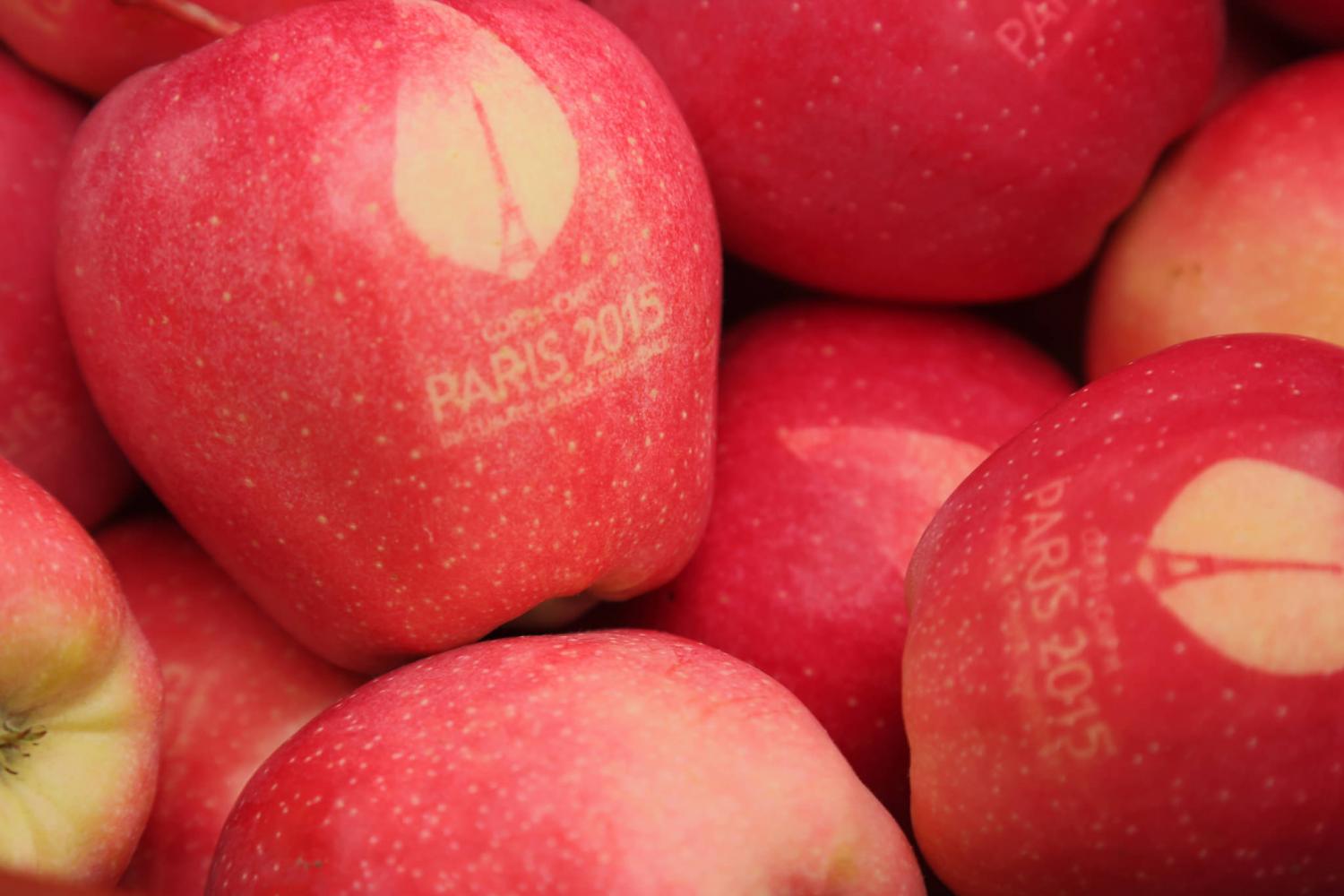
By Teresa Fogelberg, Global Reporting Initiative
On the last day of COP21 I feel a bit sentimental. I'm usually too busy to take time to reflect and remember. But on this late Friday afternoon, while everyone is waiting for the culmination of the negotiations, I find myself wandering by the closed door of the G77 and China meeting room, the offices of the UNFCCC secretariat, and the hundreds of cameras lined up for the political breakthrough moment.
I can't help gliding off into daydreams about all the COPs I have attended throughout the years. Exactly 15 years ago I was in charge of the whole COP circus, and today I find myself an influencer, with [ed note: preferential] UN Observer status. In the years 2000 and 2001 the Netherlands held the COP6 and COP6bis presidency, and I was pulled out of my Foreign Affairs Directorship of the Research and Education department to become national Climate Change Director and Head of Delegation. I was suddenly in charge of the whole proceedings in The Hague, Lyon and Bonn. Since then I have organized many conferences, but never again did I have a €30 million budget. No corporate sponsorships were allowed, because at that time, business was the voice against climate. The UN Global Compact, WBCSD and GRI had just been created, and their collective pro climate voice was still weak against the strong anti UNFCCC lobby, spearheaded by the oil industry.
I had a delegation of 35 experts, almost all of them climate, forest, energy and legal experts. It was my task to pull all the technical sub-negotiations together, manage the EU coordination, and negotiate with G77, and other geopolitical giants like the U.S.
COP6 was about making the Kyoto Protocol happen, the first legally binding climate change regime, under the UN Climate Change Convention. Unfortunately, COP 6 was overshadowed by the U.S. election, where the week-long counting of the votes between candidates Al Gore and George W. Bush caused confusion and nervousness. The U.S. delegation, still under Clinton, was held hostage by 25 members of the U.S. congress, that came along to block any US ‘giveaways.’
Without failure there is no success!
So COP6 failed, on the night between Thursday and Friday, at 3 o'clock in the morning. That was a rare moment in my professional career that I broke into tears. After Christmas, I got a midnight call from the Dutch ambassador in Washington with the news that Kyoto was unlikely to succeed.
The second time I cried was six months later, in Bonn, at the end of COP6bis when almost all UN members defied the strong U.S. pressure, and voted for the Kyoto Protocol.
It was a great lesson to see that geopolitical power of the largest superpower does not always win. What I also learned is the extremely positive force of civil society and business, in making the unthinkable happen. The strongest allies for our cause as government negotiators were WWF, the climate coalition, as well as companies like BP and DuPont. It was business that invented the climate flexible mechanisms like CDM and carbon trading. That same year, the UN Global Compact was formed by Kofi Annan. And I discovered GRI as the first multi stakeholder framework through which companies could measure and report their sustainability impact. I was so impressed with the energy, creativity and power of these new initiatives, that I managed to get GRI to set up its headquarters in Amsterdam. I cut the umbilical cord with the government and joined GRI. The rest is history.
Now, 15 years later, I return to COPs with a different hat. I find that the task is more rewarding. Instead of endless negotiations and talks in informal and EU coordination, I spend my time influencing the outcome, through the value of GRI Standards. I can bring the perspective of the 6000+ reporting companies across 93 countries, and the many strategic partnerships with the UN, civil society, and business to have an impact on the outcome.
What strikes me now, compared to 15 years ago, is:
1. There is no longer a single overarching, legally binding UN framework, but a patchwork of extremely strategic initiatives, within the policy framework of the outcome document
2. There is much more focus on adaptation and the human dimension of climate change, as well as a better focus on the interconnectedness between climate change and the other global challenges, which are captured in the newly adopted Sustainable Development Goals
3. A strong focus on transparency, monitoring, reporting and verification, both of the governmental INDCs, the national emission reduction targets; as well as of the private sector contribution, positive or negative, to mitigation and adaptation; with a strong focus on the use of globally accepted standards like GRI Standards
4. And last but not least, a much more positive spirit. Finally, after so many years, those that have to close the deal, the key negotiating government delegations, don't hide behind skepticism but will commit to the Paris deal.
Enough dreaming. I'm off to soak up the anticipation of the final, final agreement.
See you next year in Marrakech!
TriplePundit has published articles from over 1000 contributors. If you'd like to be a guest author, please get in touch!














